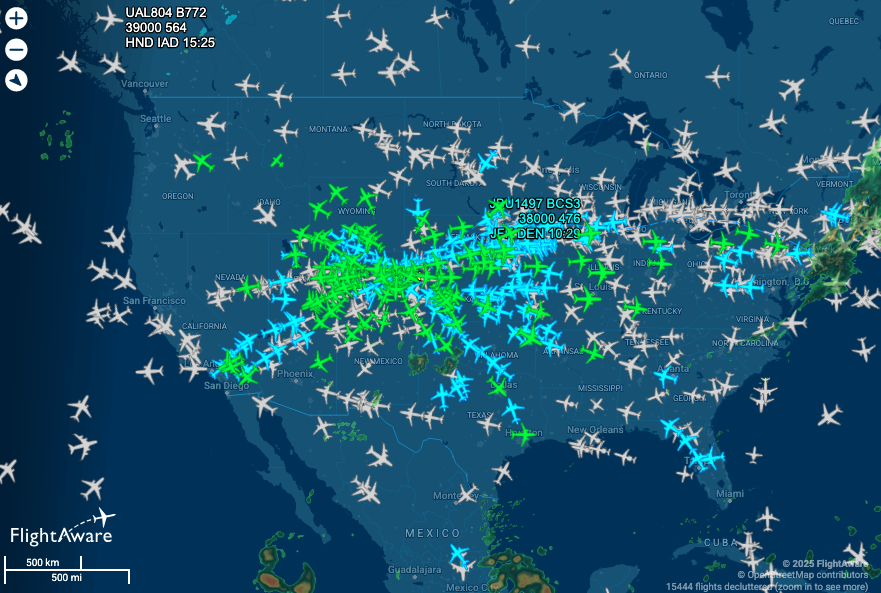U.S. Flight Delays Mount as Air Traffic Control Staffing Crisis Deepens

Air traffic control staffing shortages continued to disrupt air travel across the United States for a second consecutive day on Tuesday, as the partial government shutdown entered its seventh day, according to the Federal Aviation Administration (FAA). The agency confirmed that several major airports were affected, with delays worsening amid challenging weather conditions and growing employee fatigue.
By Wednesday Oct. 8, disruptions had intensified, as multiple air traffic control alerts forced nationwide slowdowns. Equipment issues impacted major hubs including New York, Los Angeles, Chicago, Denver, Atlanta, and Miami, prompting the FAA to implement flight metering—slowing the flow of air traffic to prevent congestion and ensure safety while engineers worked to resolve the problem. Some flights experienced delays of more than five hours, compounding the strain on an already overburdened air travel system.
The FAA said arriving flights at Newark Liberty International Airport were being held for up to 30 minutes due to staffing shortages, while Nashville International Airport and other key hubs also reported operational slowdowns. In Chicago, the agency warned that it could reduce the number of hourly arrivals at O’Hare International Airport because of staffing constraints at the Atlanta Air Route Traffic Control Center, one of the nation’s busiest facilities managing high-altitude flights.
Transportation Secretary Sean Duffy said on Monday, October 6, that the FAA had seen a “slight increase” in air traffic controllers calling in sick, adding that staffing levels had been reduced by up to 50% in some areas since the shutdown began last week. “If we don’t have controllers, we’re going to make sure the airspace is safe,” Duffy said Tuesday on Fox News. “So what we do is slow traffic.”
More than 13,000 air traffic controllers and 50,000 Transportation Security Administration (TSA) officers are required to work through the shutdown under federal law, as their jobs are considered essential to national safety. However, they are currently working without pay, with only a partial paycheck expected on October 14.
The ongoing labor strain has begun to ripple through the aviation network. According to flight tracking site FlightAware, more than 2,300 flights were delayed nationwide on Tuesday, including roughly 200 in Nashville, representing about 20% of the airport’s total flights. Severe weather has compounded the issue in parts of the country, but the FAA confirmed that staffing shortages remain a major factor.
Aviation unions have repeatedly warned that the nation’s air traffic control system is dangerously understaffed, even without the added stress of a government shutdown. Before the funding lapse, fewer than 10% of U.S. air traffic control facilities were operating at recommended staffing levels, and recruitment has struggled to keep pace with retirements and training backlogs.
The last prolonged government shutdown, which lasted 35 days in 2019, triggered a wave of absences among air traffic controllers and TSA officers after missed paychecks, causing security bottlenecks and major flight delays. That episode ended only after air traffic slowdowns at New York airports placed heavy pressure on Congress to reach a deal.
With political negotiations stalled and no end to the shutdown in sight, travelers are being urged to monitor flight status updates closely. The FAA emphasized that safety remains its top priority, even if it means slowing the national airspace system to cope with reduced staffing.
“Safety always comes first,” an FAA spokesperson said. “We will continue to adjust operations to ensure the flying public remains protected.”
Related News: https://airguide.info/?s=FAA, https://airguide.info/category/air-travel-business/travel-health-security/
Sources: AirGuide Business airguide.info, bing.com, yahoo.com, reuters.com
